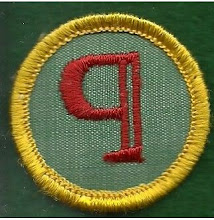Uncle Ah Sing; which is a pretend name, sort of like calling someone "Mister Mister". He went by many, many names: Ah Sam, Silver Dollar Sam, China Sam, Indian Sam. I met him the same summer or summers that my dad and I traveled the San Juans with a group of Lummi men who were searching out and mapping shell middens. I'm not sure if this was one summer or two: it was around the time my dad and I went to see Celilo Falls before they were flooded. (1956 or 1957?)
He lived mostly in Canada as an adult; never married. If he was in his teens in 1870 as he said he was, he was nearly one hundred years old when I met him; and that seems entirely possible. He was quite tall for our family -- a little over six feet. He said he came to the USA when he was about twelve -- he was already big for his age, never went to school, started working right away as a dishwasher in Seattle. He knew Chin Chun Hock and a few of the really early Chinese settlers in Seattle -- and in Olympia. Though most people don't know it, the early history of Olympia is essentially a history of the Chinese families and especially the Locke family.
We visited Uncle in Vancouver's Chinatown before the island trip; he gave me a silver dollar, talked with dad about places he'd been. I got the impression that he and dad were not related by blood, but by village birth.
Uncle worked on the Union Pacific and then on the Northern Pacific he said he was a blaster; no way to verify except that a couple of his paper sons and grandsons were munitions experts and World War I and II.
Between railroad jobs he worked lots of odd jobs; he often traveled with the Samish or Saanich or both; and perhaps the Lummi too. He was rumored to have an Indian common-law wife; haven't been able find info on that. Among his many odd jobs were digging a ditch on Waldron and working in the lime kilns on San Juan, though not in Roche Harbor, I'm guessing the Eureka Lime Co. site, that would fit his timeline. He did a lot of work with loggers all over the islands and around Bellingham but not always logging; I'm guessing he was a cook.
He also ran traplines in Alaska, worked the fisheries up there, was disgusted with the gold rush...





